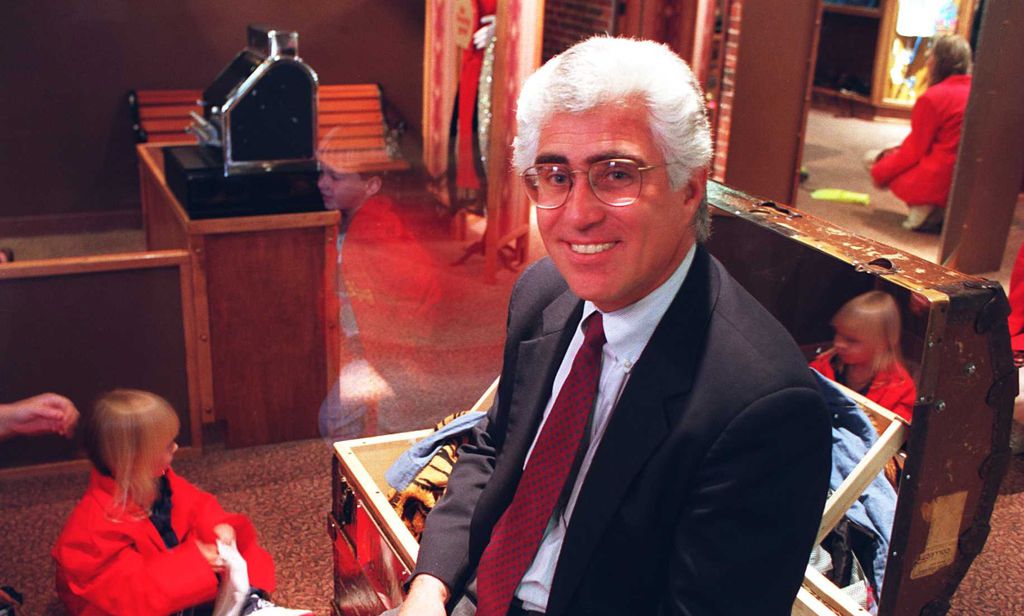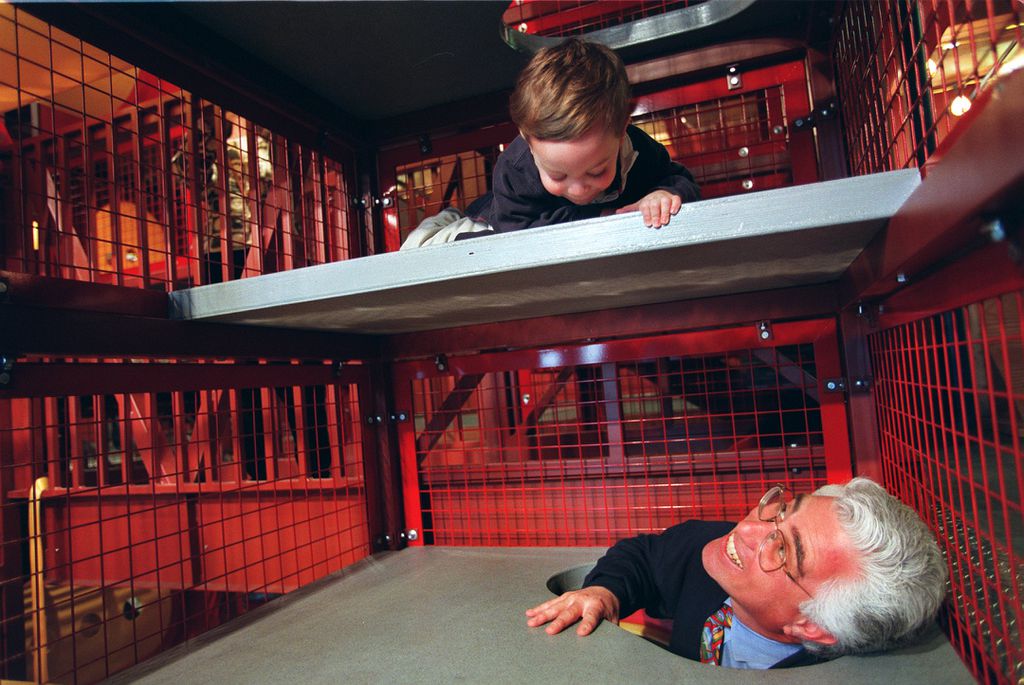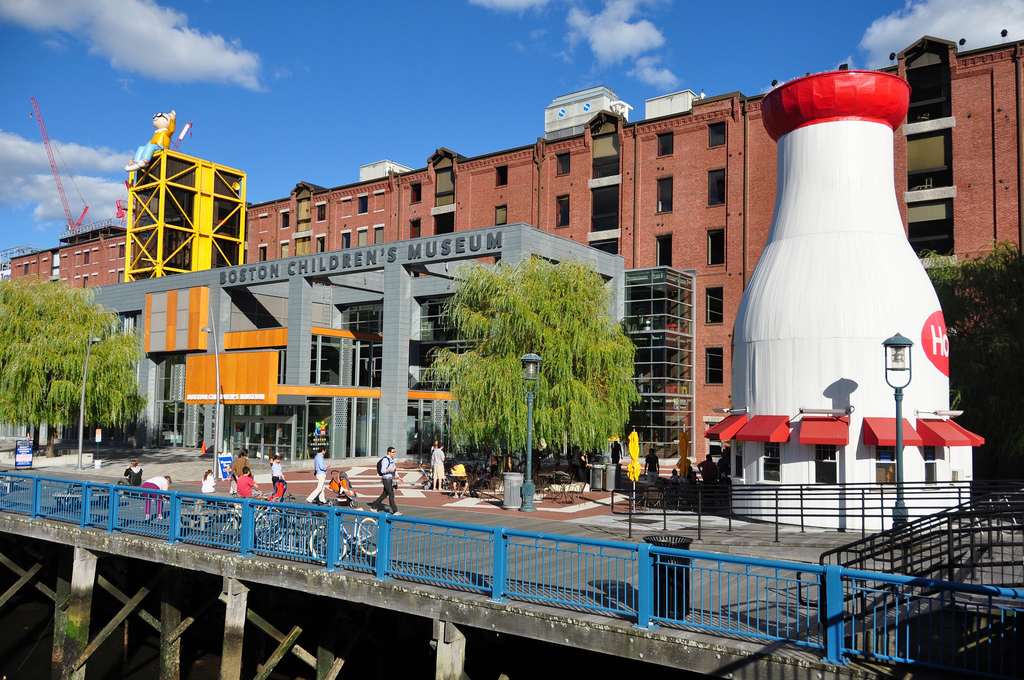Louis Bartholomew Casagrande, May 27, 2021
Louis Casagrande, who made the Children’s Museum a go-to place for all of Boston, dies at 74

While the Children’s Museum had a history of taking a multicultural approach to exhibits, Mr. Casagrande wanted to take its inclusivity to a higher level and let underserved urban neighborhoods know the institution was theirs, too.
“I think he was really committed to being a museum for all Bostonians,” said Carole Charnow, the museum’s current president and chief executive.
Trained as an anthropologist before he took a museum job in Minnesota and found his life’s work, Mr. Casagrande “kind of brought this anthropological curiosity with him always, trying to understand everything about the culture of the city,” said Kate Taylor, who was a museum trustee when he was hired.
“He was an extraordinary leader at the Children’s Museum and it was obvious from the beginning,” Taylor said. “Part of the mission, to him, was to expand accessibility to the museum to all of the neighborhoods in Boston.”
Mr. Casagrande also emphasized the museum’s role in Greater Boston’s educational framework.
“What I feel very strongly is that museums need to be part of the solution to change education,” he told the Globe.

“We’re only one part of the solution,” he added. “But one thing we do really well is create new tools and ways of teaching. We can help teachers do hands-on learning. We can be research and development centers for schools, and be places where teachers can come to reflect.”
Mr. Casagrande “had a bold imagination,” Charnow said.
“Lou came with big ambitions for the museum — for the Children’s Museum, but also for the children’s museum field,” said Leslie Swartz, senior vice president of research and program planning at the Children’s Museum. “I think he contributed a lot to elevating esteem for children’s museums and what they do.”
Among the organizations, Mr. Casagrande helped run was the American Alliance of Museums, which he led from 2002 to 2004.
During and after his career as a museum executive — he stepped down as Children’s Museum president and chief executive in 2009 — Mr. Casagrande was a resource for other museum leaders in New England and beyond.
Miranda Massie, founder and director of the Climate Museum in New York City, singled him out in a 2015 interview on the alliance website as a key adviser in creating the institution.
“He’s intellectually brilliant and a visionary,” Massie said. “He’s savvy and wise about the business side. He’s intuitive, warm, and kind as a mentor.”
The oldest of four siblings, Louis B. Casagrande was born in New York City in 1947.
His parents, Mary Deveney Casagrande, who was from Scotland, and Joseph Casagrande had met during World War II in England, when she was working for British intelligence and he for US intelligence.
Mr. Casagrande spent his childhood in Washington, D.C.; Darien, Conn.; and Urbana, Ill., as his father moved up through the academic ranks to become head of the anthropology department at the University of Illinois at Urbana-Champaign.
In 1965, Mr. Casagrande graduated from Urbana High School, where he had met Julie Petty. They married in 1969.

He graduated with honors from Yale University with a bachelor’s degree in anthropology, received a master’s in international relations from American University in Washington, and graduated with a doctorate in anthropology from the University of Minnesota.
Always down to earth, Mr. Casagrande didn’t use his Dr. title, except for now and then while making dinner reservations.
When he was in Minnesota, he took a job at the Science Museum in St. Paul, where he was curator of anthropology and later senior vice president when he left for Boston.
“Never, ever had he thought of being a museum professional — not in his wildest dreams,” his wife said. “It was a matter of, ‘Well, we’ll do this for a while,’ and he absolutely thrived. He loved it. It was a way to connect with the public, and it was a way to also be an intellectual, and I would say that Lou was definitely an intellectual.”
In Boston, Mr. Casagrande also worked to diversify the board of trustees at the Children’s Museum, while using his fund-raising skills to bring to fruition a $47 million, 23,000-square-feet expansion in the Seaport District.
“What he essentially did was open the museum to the waterfront,” Charnow said.
Swartz said he provided the foundation for exhibits such as “Boston Black,” “Countdown to Kindergarten,” and “Children of Hangzhou.”
Mr. Casagrande’s charisma and charm helped him become part of the city’s fabric of civic and governmental leaders.
“He loved Boston,” said his son, Joe of Brookline. “Boston really spoke to him.”
Soon after Mr. Casagrande arrived, he formed a key alliance with then-mayor Thomas M. Menino.
“He met Menino at a gathering,” Julie recalled, “and Menino said, ‘I’m the first Italian mayor of Boston,’ and Lou said, ‘That’s great, I’m the first Italian president of the Children’s Museum,’ and after that, they were fast friends.”
A memorial gathering at the Children’s Museum will be announced for Mr. Casagrande, who in addition to his wife and son leaves a daughter, Elizabeth of Newburyport; a sister, Laurie of Minneapolis; and three grandsons.
Mr. Casagrande “was the type of person who never did anything halfway,” his son said. “He always did everything full bore.”
That was the case with his family, to whom he was devoted.
With friends, he formed a grandfathers’ breakfast group, at which “everybody would show pictures and talk about their grandchildren,” said Ben Taylor, a former Globe publisher, and Kate’s husband, who was part of that group.
Mr. Casagrande, Taylor said, “adored his grandchildren”: Lucca, Matteo, and Roman.
After being diagnosed in 2012 with pancreatic cancer, Mr. Casagrande continued to travel as much as possible. For years, he made annual visits to Mexico. “He always considered Mexico his second home,” his wife said.
Post-diagnosis, they traveled extensively in the United States.
“I don’t want you to get the picture of Lou as a cancer patient, sitting with a blanket over his legs,” Julie said. “In that time we traveled over 100,000 miles, driving all over. I don’t think there’s a place we didn’t cover.”
Mr. Casagrande “truly was an anthropologist in the sense that he loved culture — he loved observing, studying, and interacting,” Joe said. “He loved going into small towns across the country, and he loved big cities. He was happy walking around the streets of Manhattan, and he was happy hanging out in a rest stop in Alabama.”
Bryan Marquard can be reached at bryan.marquard@globe.com.

Check out his 25th and 50th reunion essays on his profile page for more.